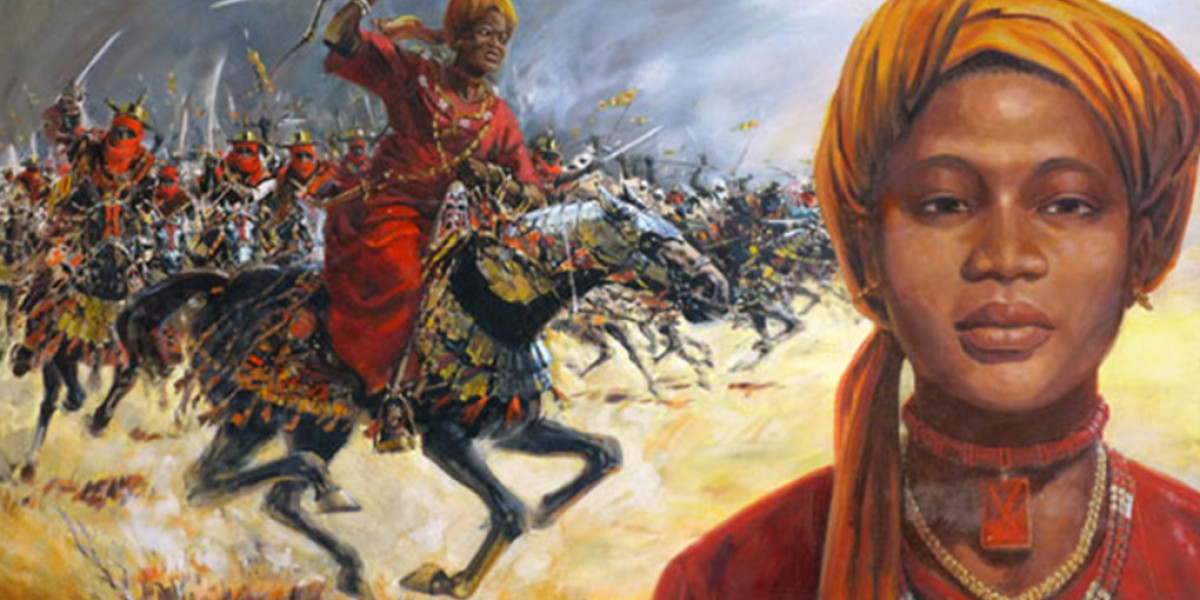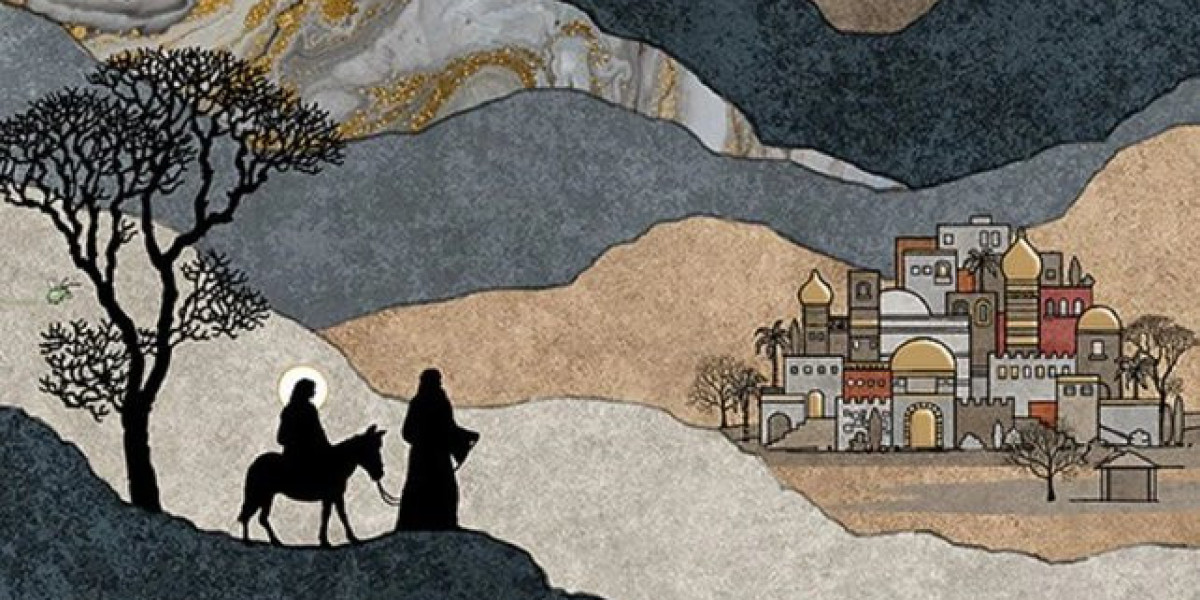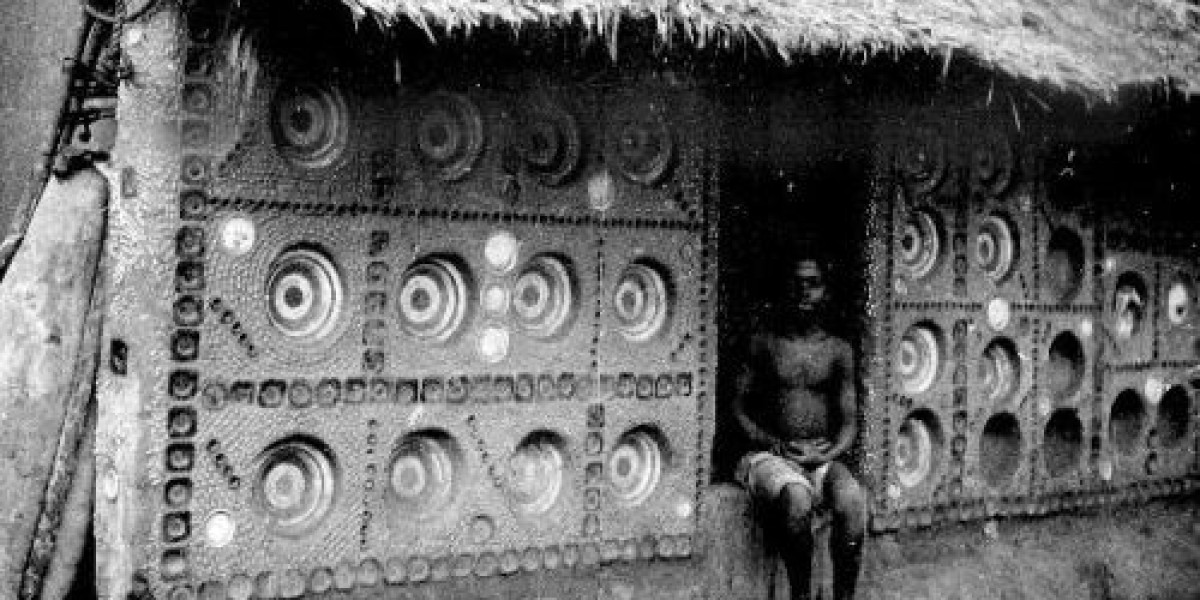Queen Amina was a legendary ruler of Zaria, a Hausa city-state in what is now northern Nigeria. She is widely regarded as one of African history's greatest military leaders and state builders.
She expanded the territory of Zaria to the most significant borders in Hausaland and built a network of fortifications around her cities. She is also celebrated for her courage, intelligence, and skill in warfare.
Early Life and Accession
Queen Amina was born around 1533 into the royal family of Zazzau, the original name of Zaria. Her grandfather was King Sarkin Nohir, and her mother was Queen Bakwa Turunku, who inherited the throne in 1549. Amina was trained in political and military matters from a young age and was declared the heir apparent at the age of 16. She also received 40 enslaved women as a sign of her status.
However, when her mother died in 1566, her younger brother Karama became the king instead of her. Amina served under him as the head of the cavalry and led several successful campaigns against the neighboring states. She gained fame and wealth as a warrior and a trader and established herself as a respected leader.
In 1576, after her brother's death, Amina finally ascended the throne of Zazzau. She was 43 years old and ready to embark on a remarkable reign.
Military Conquests and Expansion
Queen Amina wasted no time in pursuing her ambition of expanding her domain. She embarked on a series of wars that lasted for 34 years and conquered the lands of Katsina, Kano, and many others. She also fought against the Nupe and the Jukun and secured the trade routes across the Sahara.
She never lost a battle and personally led her troops into combat. She was skilled in using swords, spears, and bows and wore metal armor in battle. She also introduced the cultivation of kola nuts, a valuable cash crop, and improved the trade and commerce of her kingdom.
Fortification and Legacy
One of the most remarkable achievements of Queen Amina was the construction of a series of walls around her cities, known as "ganuwar Amina" or Amina's walls. These walls served as both defensive and administrative structures and marked the boundaries of her empire. Some of these walls still exist today and are considered as national monuments.
Queen Amina died in 1610 after a glorious reign of 34 years. She left a legacy of strength, courage, and greatness that inspired generations of Nigerians and Africans. She is regarded as a national hero and a symbol of female empowerment. She is honored with statues, coins, and stamps and has been the subject of books, films, and TV shows.
Queen Amina of Zaria was a remarkable woman who defied the norms of her time and achieved greatness. She was a warrior, a ruler, and a builder who left an indelible mark on the history of Africa. She was indeed the warrior queen of Hausaland.
Cultural Influence and Representation
Queen Amina's legacy has transcended the boundaries of time and space and has influenced various aspects of culture and society. She is revered as a role model for women and girls, especially in northern Nigeria, where she symbolizes female education and empowerment. She is also celebrated as a source of pride and identity for the Hausa people and a unifying figure for the diverse ethnic groups of Nigeria.
Queen Amina has been represented in various media and art forms, such as literature, film, television, music, and sculpture. Some notable examples are:
Amina, Queen of Zaria, a historical novel by M.O. En, published in 1974, that narrates the life and exploits of Queen Amina.
Queen Amina of Zaria, a Nigerian film directed by Izu Ojukwu and released in 2012, depicts the rise and fall of Queen Amina, starring Clarion Chukwura as the titular character.
Amina is a Nigerian television series created by Lola Shoneyin and aired in 2019. It follows the adventures of Queen Amina, played by Lucy Ameh.
Amina: The Musical, a Nigerian musical theatre production written by Jude Idada and Bolanle Austen-Peters, staged in 2017, celebrates the achievements and challenges of Queen Amina, featuring Lala Akindoju as the lead role.
Queen Amina Statue, a bronze sculpture of Queen Amina on horseback, was erected in 1976 at the National Arts Theatre in Lagos, Nigeria, as part of the FESTAC 77 festival.
Conclusion
Queen Amina of Zaria was one of the most remarkable rulers in African history, who left a lasting impact on her region's political, economic, and cultural landscape. She was a fearless warrior, a visionary leader, and a brilliant strategist who expanded her kingdom to unprecedented heights. She was also a trailblazer for women's rights and a champion of Hausa culture and identity. She is a hero who deserves to be remembered and honored by all.










